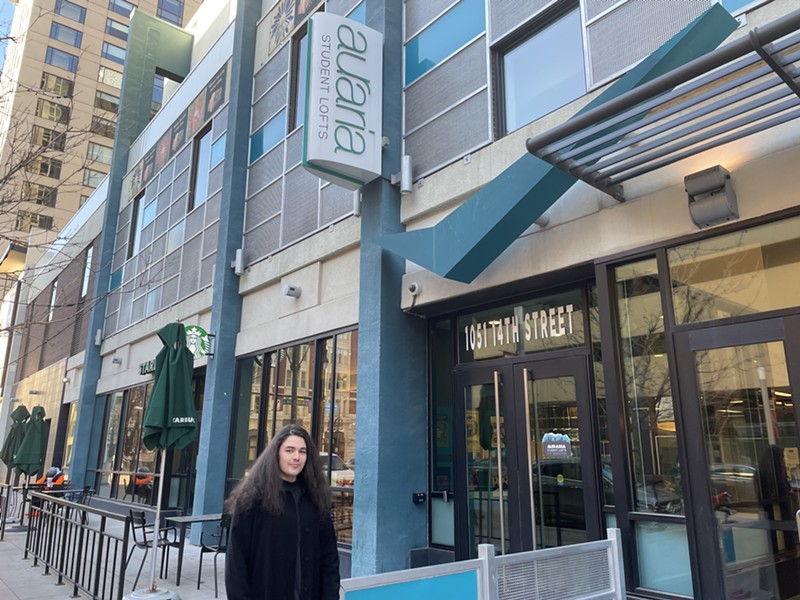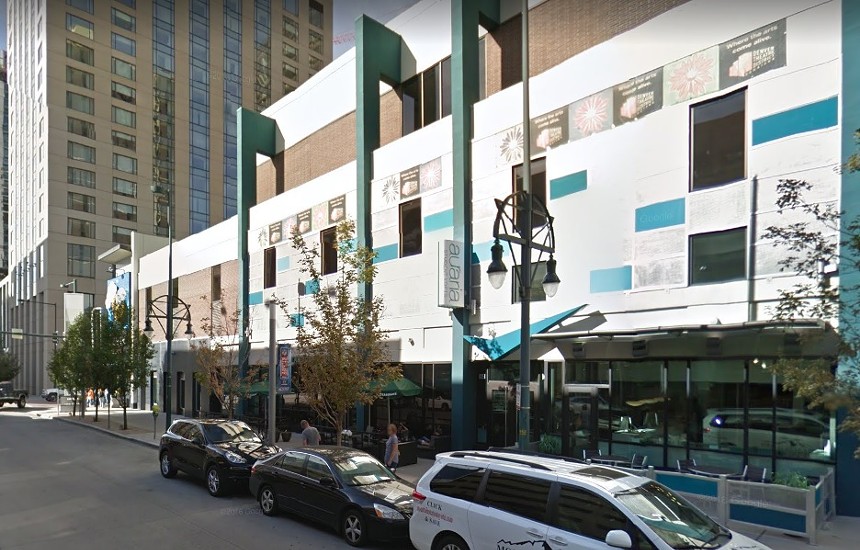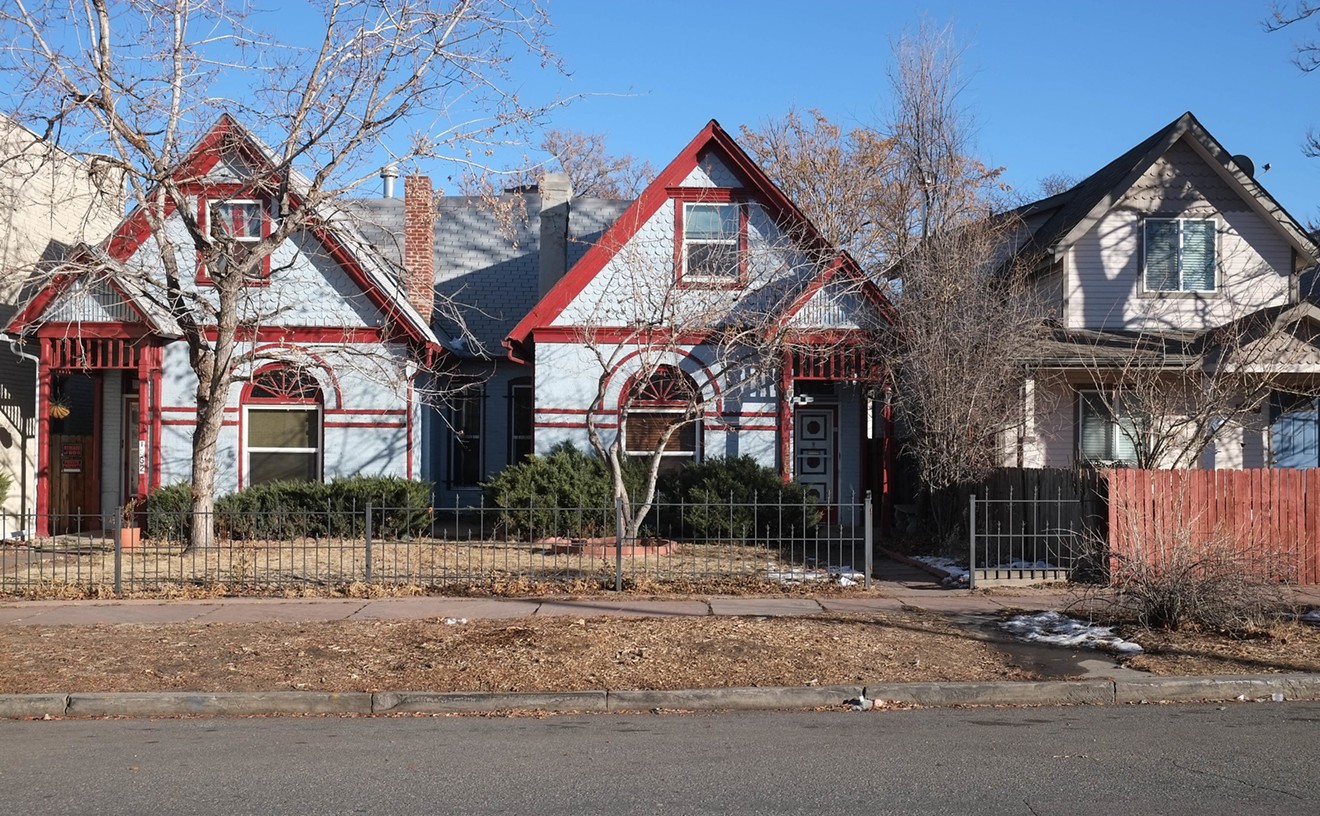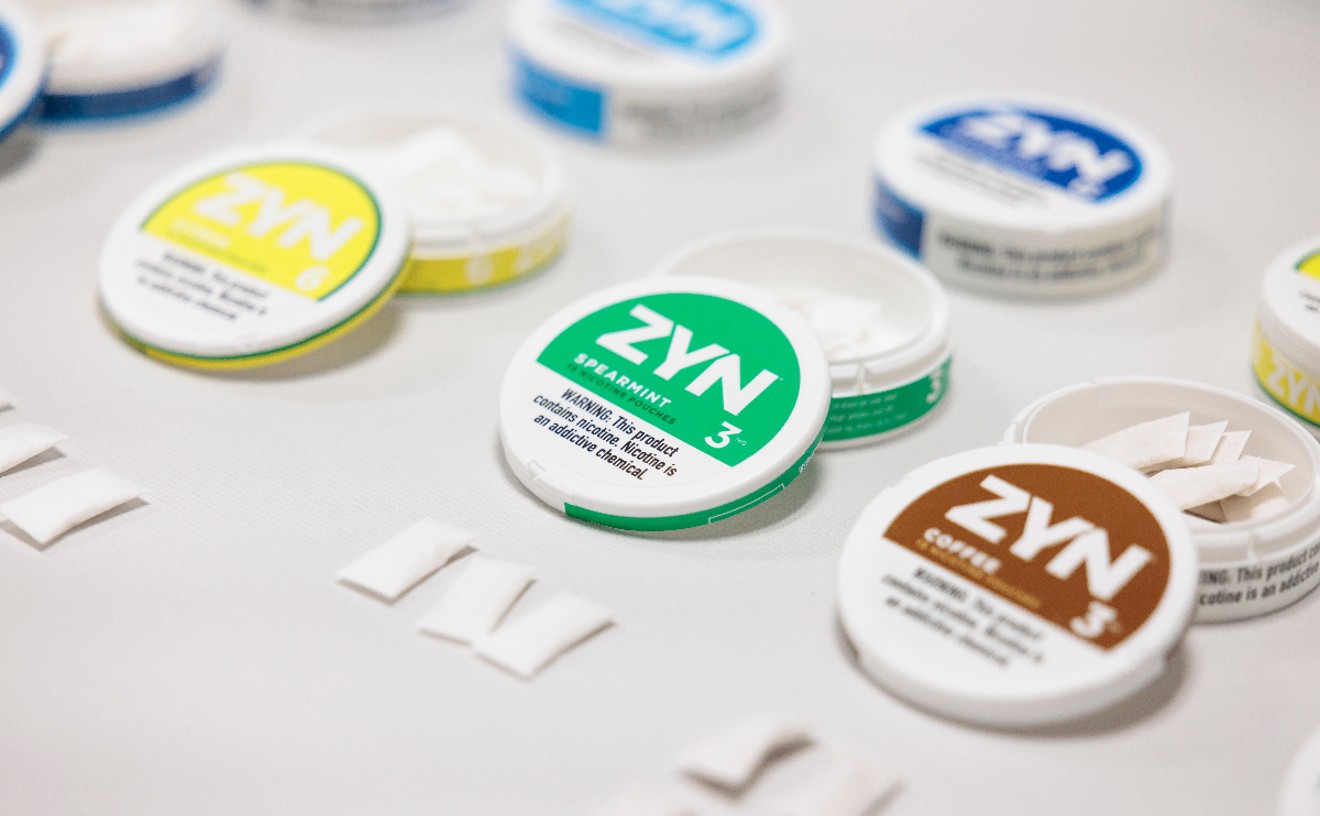Auraria Student Lofts is owned by Nelson Partners, a real estate firm based in California that focuses on off-campus student housing. Located on 14th Street above the Curtis Hotel, it bills its proximity to the Auraria Higher Education Center — a commuter-based campus for students at the University of Colorado Denver, Metropolitan State University of Denver and Community College of Denver — as an amenity for potential tenants. The campus has only one official dormitory: CU Denver-operated City Heights, which opened its doors in August 2021.
Liveoak wanted to live close to campus and make connections with other students. The 27-year-old CU Denver student says that when he signed his lease with the building, he was shown a room that he was told would be his. When he arrived to move in just five days later, however, he was given a different, much smaller room, despite paying an extra $25 per month for a larger one in order to have more space for his cat.
At first Liveoak thought the staff at the Lofts would work with him to make his situation better, but he quickly realized he was wrong. Although his lease specifies that ownership may transfer residents to different rooms with seven days’ written notice and if the room is “equally suitable,” the company wouldn’t budge.
The lease began on November 1, 2020, and by November 3, Liveoak had signed paperwork to move out.
“It feels like they’re trying to give the least amount of information possible,” he says of his experience with the building. Those three days still haunt him: On November 5, 2021, Liveoak received a call from StuCo, a student collections agency, informing him that he owes the Lofts $10,718.40.
Liveoak thought he did his due diligence when moving out, because he'd signed a financial move-out agreement with the Lofts and it had been over a year since he'd left the property. When Liveoak said he didn't have $10,718.40, StuCo offered to settle his balance for a one-time payment of $5,500 instead.
That change enforced Liveoak’s belief that the company didn’t have standing and just wanted to get as much money out of him as possible by scaring him with potential damage to his credit — or his mother’s credit, as she was the guarantor on his lease. He says that when he called the Lofts to ask about the bill, a student worker told him they had no way of investigating since his case had been passed on to StuCo. When contacted by Westword, StuCo said the company could not go into detail regarding specific accounts.
According to Liveoak’s lease, which is over 38 pages long, a resident "acknowledges that he/she is responsible for the rent payments for the entire Term, regardless of the actual date he/she vacates the Apartment, unless written a release [sic] is obtained from Owner.” Liveoak obtained a written release on November 3, 2020, in which the Lofts agreed to give him back his security deposit. (Westword viewed the lease, as well as emails and other documents cited in this story.)
“I don’t feel like it’s personal, and I assume this is how they’re treating everyone else,” Liveoak says. “That’s concerning to me, because others could be hurt.”
He isn’t wrong.
Elise Esmond, a former Community College of Denver student who currently lives at Auraria Student Lofts, also worked for the building for nine months. During her time as an employee, Esmond says, the Lofts would not release people from their leases for any reason, even ones that seemed valid to her.
According to the lease, residents “will not be released on grounds of voluntary or involuntary school withdrawal or transfer, voluntary or involuntary business transfer, marriage, divorce, loss of co-residents, bad health, voluntarily enlistment into the Armed Services, problems with other Residents, or any other reason, except for those listed below.” Those exceptions are death, finding a substitute resident, or receiving a verified call into active military duty.
“You couldn't get out unless you were drafted or you died,” Esmond simplifies. When she started work in August 2020, she recalls, she spent days on the phone listening to people who were upset because the company wouldn’t let them out of their leases despite the pandemic causing their classes to be online or their financial situation to change.
Esmond says that no matter the reason someone called, employees were told to say the manager wasn’t in and there was nothing they could do. The official policy was that if a student’s school went completely online before the student’s lease began, they could get out of their lease, she notes. However, any hybrid model where some students were online and others were attending class in person, which was the case for the schools on the Auraria campus, meant most students could not get out of their leases.
Even students who move out at the end of their lease agreement and properly complete move-out paperwork may not receive their security deposit back. That’s what’s happening to Aurelia Valente, a CU Denver graduate who roomed with Esmond. Her move-out paperwork shows that the Lofts owes Valente $1,282. Those documents are dated August 10, 2021, and Valente still hasn’t received the money.
Valente lived at the Lofts from August 2019 to August 2021. She describes the facility as passable until a renovation project to modernize the building began in 2020. It is still ongoing.
“When that renovation project started, it all went to hell,” Valente says. One morning she woke up to the sounds of construction outside her window. The first thing she saw was a man outside her open blinds, apparently working on some exterior fixes. She couldn’t believe she hadn’t been notified that construction was starting. When she contacted management asking why residents weren’t informed, she was told that management didn’t know construction workers would be working on the building at that time.
After her apartment was renovated, there were paint splatters in certain areas, chunks taken out of plywood drawers, and the gap between the bottom of the cabinets and the floor was covered with crooked wood. “Other than that, the renovation looked really good,” Valente says. “We had brand-new appliances. We had a brand-new countertop. We had a brand-new backsplash. We have new flooring. But there were just some issues that they hadn't fixed.”
Based on her previous year living at the Lofts and the experience of other residents, Valente filled out work orders for every problem; she wanted to keep a record so that the company wouldn’t try to charge her for them when she moved out. She didn’t have faith that the problems would be addressed, but she did have faith that she would be on the hook without documentation.
Based on her experience working in the office, Esmond agrees. No matter the nature or seriousness of complaints from residents, she says, they were all treated the same way by management: as nuisances.
“Real issues were treated the same way as any smaller, more trivial items by management, and they didn't want to hear about any of it,” Esmond says. During her time living at the Lofts, her dishwasher has been out of commission for over three months, her air-conditioning hasn’t worked since August, and plumbing issues are constant. The building consistently only has four working laundry machines, despite a $7/month charge for laundry for all residents, and at one point the hot water was out for five days. Esmond says she has asked for rent concessions and has been refused.
In the lease, the only reference to maintenance from Lofts management reads, “Owner agrees to maintain, at its expense…any provided furniture or appliances in a safe, sanitary and operable condition.” However, there are seven provisions detailing the responsibility of renters not to damage any property and noting that renters must pay for any maintenance caused by their actions within ten days.
One of the biggest maintenance issues identified by residents is that the building's three elevators don’t work much of the time. Renters reported that only one worked consistently. Valente says that at one point, all three were out of commission for three days.
A log of all 911 calls to the building since 2008 provided by the Denver Fire Department shows that there were 29 elevator rescues at the thirty-story building from 2008 to 2017 and 33 from 2018 to 2021. Fire rescues represented 27.5 percent of 911 calls to the building since 2008.
The Denver Fire Department issued the building five Orders to Comply between June 2019 and December 2020 for problems with its elevators. Orders to Comply are citations informing a business that it isn't operating within the fire code and can lead to legal repercussions if a business doesn’t respond.
Greg Pixley, press information captain for Denver Fire, says the Lofts is in the process of replacing all three elevators and that Denver Fire is working with the company to ensure that the updates are up to code.
“We have an empathetic approach to being able to help other people as they're going through the need to repair these types of elevators…as long as it does not compromise the safety of others,” Pixley says.

Elliot Liveoak lived at Auraria Student Lofts for less than a week before leaving because of poor treatment.
Catie Cheshire
CU Denver did not make anyone available for comment for this story despite repeated requests over the course of several weeks.
Community College of Denver told Westword, “As CCD is a commuter campus, we have no involvement with the Auraria Student Lofts. The only housing options we offer are links to find apartments, but we do not make any specific recommendations about housing.”
Braelin Pantel, associate vice president and dean of students for Metro State University, says that while the school doesn’t provide housing of its own, it’s aware of how difficult it can be to navigate finding housing in downtown Denver.
The school has a housing portal for students and maintains relationships with as many apartment complexes in the area as it can. It also has an emergency fund designed to help students who are short on rent or experiencing housing insecurity make it through the month. The university plans to hire someone to manage housing soon, Pantel says.
Pantel doesn’t have a contact with Auraria Student Lofts, and urges any Metro students struggling with housing to reach out to her.
“I can't fix the elevator,” she says, “but I'd be happy to just hear them out and see if there are any other things that we might be able to do to help support them overall.”
The need for more student support is what concerns Elliot Liveoak the most. As an older student, he had experience with renting, but he worries about those who don’t have family locally or haven’t rented before. His message: This isn’t how it usually is to be a renter, and tenants at the Lofts deserve more.












